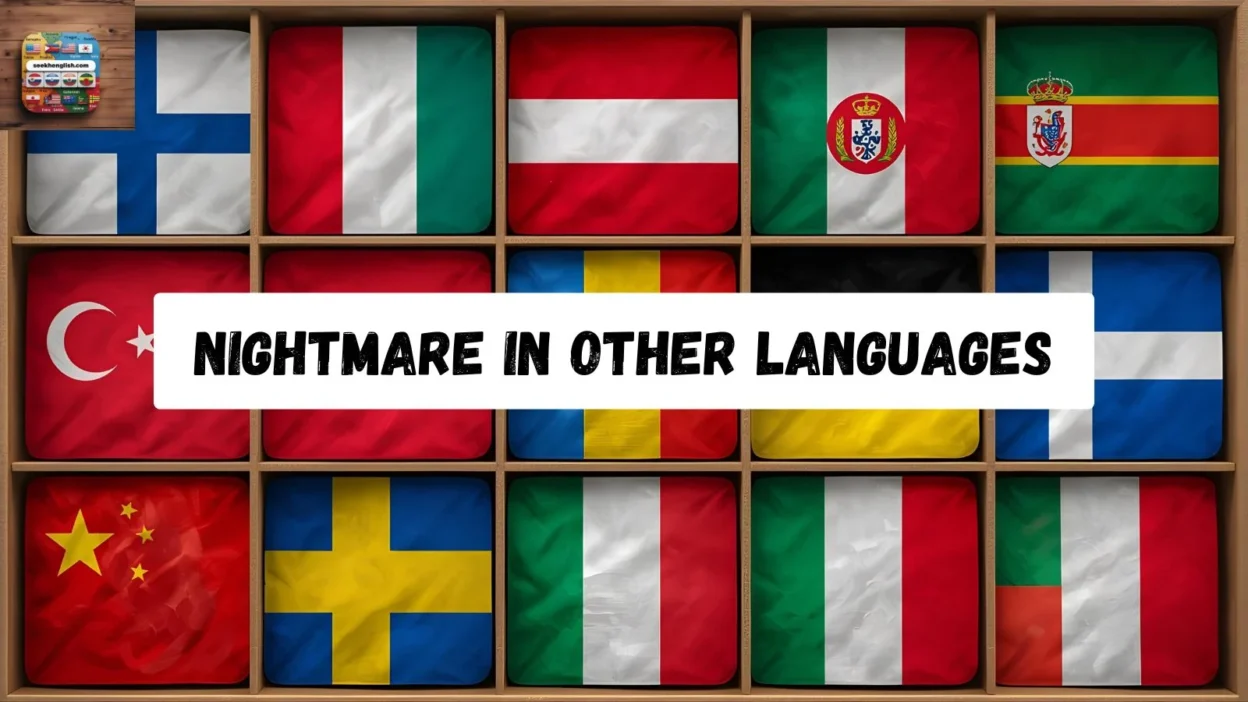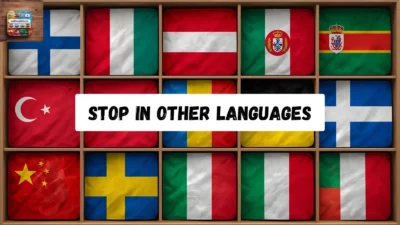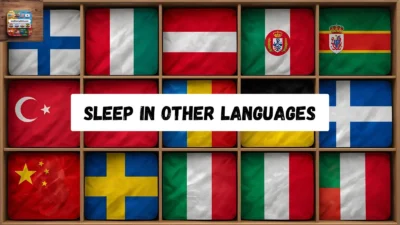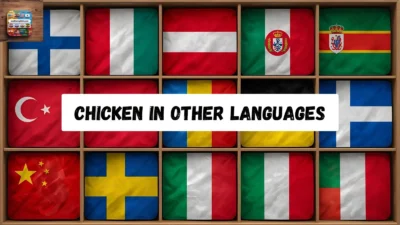Nightmares are scary dreams that disturb our sleep and often leave us feeling uneasy when we wake up. People search for how to say “nightmare in other languages” because they want to learn vocabulary, understand cultural expressions of fear, or even use these words in writing, movies, or conversations.
This article will help you discover the meaning of nightmare in 650+ different languages, with simple pronunciation and example sentences. By learning these, you’ll be able to recognize the word anywhere in the world and even use it in everyday communication.
How to Say Nightmare in 650 Different Languages
- Afrikaans (🇿🇦) – nagmerrie | Pronunciation: nahg-meh-ree Example: Ek het gisteraand ’n nagmerrie gehad. (“I had a nightmare last night.”)
- Albanian (🇦🇱) – makth | Pronunciation: mahk-th Example: Pata një makth të tmerrshëm. (“I had a terrible nightmare.”)
- Amharic (🇪🇹) – አሳፋሪ ህልም (asafari hilm) | Pronunciation: ah-sah-fah-ree hill-m Example: እኔ አሳፋሪ ህልም አልኩ። (“I had a nightmare.”)
- Arabic (🇸🇦) – كابوس (kabūs) | Pronunciation: kah-boos Example: كان لدي كابوس غريب. (“I had a strange nightmare.”)
- Armenian (🇦🇲) – մղձավանջ (mghdzavanj) | Pronunciation: muhg-dzah-vanj Example: Ես մղձավանջ տեսա. (“I saw a nightmare.”)
- Azerbaijani (🇦🇿) – qorxu yuxusu | Pronunciation: gor-khoo yoo-khoo-soo Example: Dünən qorxu yuxusu gördüm. (“I had a nightmare yesterday.”)
- Bangla (🇧🇩) – দুঃস্বপ্ন (dush-shopno) | Pronunciation: doosh-shop-no Example: আমি দুঃস্বপ্ন দেখেছি। (“I saw a nightmare.”)
- Basque (🇪🇸) – amets gaizto | Pronunciation: ah-mets guys-toh Example: Atzo gauean amets gaizto bat izan nuen. (“I had a nightmare last night.”)
- Belarusian (🇧🇾) – кашмар (kashmar) | Pronunciation: kash-mar Example: Мне прысніўся кашмар. (“I had a nightmare.”)
- Bengali (🇮🇳) – দুঃস্বপ্ন (dush-shopno) | Pronunciation: doosh-shop-no Example: গত রাতে আমি দুঃস্বপ্ন দেখেছি। (“I had a nightmare last night.”)
- Bosnian (🇧🇦) – noćna mora | Pronunciation: notch-nah moh-rah Example: Imao sam noćnu moru. (“I had a nightmare.”)
- Bulgarian (🇧🇬) – кошмар (koshmar) | Pronunciation: kosh-mar Example: Сънувах кошмар. (“I dreamed a nightmare.”)
- Catalan (🇪🇸) – malson | Pronunciation: mal-son Example: Vaig tenir un malson. (“I had a nightmare.”)
- Chinese (🇨🇳) – 噩梦 (èmèng) | Pronunciation: uh-mung Example: 我昨晚做了一个噩梦。 (“I had a nightmare last night.”)
- Croatian (🇭🇷) – noćna mora | Pronunciation: notch-nah moh-rah Example: Imao sam noćnu moru. (“I had a nightmare.”)
- Czech (🇨🇿) – noční můra | Pronunciation: notch-nee moo-rah Example: Měl jsem noční můru. (“I had a nightmare.”)
- Danish (🇩🇰) – mareridt | Pronunciation: mar-uh-reet Example: Jeg havde et mareridt. (“I had a nightmare.”)
- Dutch (🇳🇱) – nachtmerrie | Pronunciation: nakht-meh-ree Example: Ik had een nachtmerrie. (“I had a nightmare.”)
- English (🇬🇧) – nightmare | Pronunciation: night-mare Example: I woke up from a terrible nightmare.
- Estonian (🇪🇪) – õudusunenägu | Pronunciation: uh-doo-soo-neh-nah-goo Example: Mul oli õudusunenägu. (“I had a nightmare.”)
- Filipino (🇵🇭) – bangungot | Pronunciation: bahng-oo-ngot Example: Kagabi ay nagkaroon ako ng bangungot. (“I had a nightmare last night.”)
- Finnish (🇫🇮) – painajainen | Pronunciation: pie-nah-yai-nen Example: Näin eilen illalla painajaisen. (“I saw a nightmare last night.”)
- French (🇫🇷) – cauchemar | Pronunciation: kosh-mar Example: J’ai fait un cauchemar hier soir. (“I had a nightmare last night.”)
- Galician (🇪🇸) – pesadelo | Pronunciation: peh-sah-deh-lo Example: Onte tiven un pesadelo. (“I had a nightmare yesterday.”)
- Georgian (🇬🇪) – კოშმარი (koshmari) | Pronunciation: kosh-mah-ree Example: მე კოშმარი მესიზმრა. (“I dreamed a nightmare.”)
- German (🇩🇪) – Albtraum | Pronunciation: ahlb-troum Example: Ich hatte einen Albtraum. (“I had a nightmare.”)
- Greek (🇬🇷) – εφιάλτης (efialtis) | Pronunciation: eh-fee-ahl-tees Example: Είχα έναν τρομερό εφιάλτη. (“I had a terrible nightmare.”)
- Gujarati (🇮🇳) – દુ: સ્વપ્ન (duh swap-na) | Pronunciation: doo-swap-na Example: મેં કાલે રાત્રે દુ: સ્વપ્ન જોયું. (“I had a nightmare last night.”)
- Haitian Creole (🇭🇹) – kochma | Pronunciation: kosh-ma Example: Mwen te fè yon kochma yè swa. (“I had a nightmare last night.”)
- Hebrew (🇮🇱) – סיוט (siyut) | Pronunciation: see-yoot Example: היה לי סיוט בלילה. (“I had a nightmare at night.”)
- Hindi (🇮🇳) – बुरा सपना (bura sapna) | Pronunciation: boo-rah sup-nah Example: मुझे कल रात बुरा सपना आया। (“I had a nightmare last night.”)
- Hungarian (🇭🇺) – rémálom | Pronunciation: raym-ah-lom Example: Tegnap este rémálmom volt. (“I had a nightmare last night.”)
- Icelandic (🇮🇸) – martröð | Pronunciation: mar-troth Example: Ég átti martröð í gærkvöldi. (“I had a nightmare yesterday evening.”)
- Igbo (🇳🇬) – nrọ ọjọọ | Pronunciation: n-roh oh-joh Example: Enwere m nrọ ọjọọ ụnyaahụ. (“I had a nightmare yesterday.”)
- Indonesian (🇮🇩) – mimpi buruk | Pronunciation: meem-pee boo-rook Example: Saya mengalami mimpi buruk semalam. (“I had a nightmare last night.”)
- Irish (🇮🇪) – tromluí | Pronunciation: trum-loo-ee Example: Bhí tromluí agam aréir. (“I had a nightmare last night.”)
- Italian (🇮🇹) – incubo | Pronunciation: een-koo-boh Example: Ho avuto un incubo. (“I had a nightmare.”)
- Japanese (🇯🇵) – 悪夢 (akumu) | Pronunciation: ah-koo-moo Example: 昨夜、悪夢を見ました。 (“I had a nightmare last night.”)
- Javanese (🇮🇩) – ngimpi ala | Pronunciation: ngeem-pee ah-lah Example: Wingi bengi aku ngimpi ala. (“I had a nightmare last night.”)
- Kannada (🇮🇳) – ದು:ಸ್ವಪ್ನ (duh swap-na) | Pronunciation: doo-swap-na Example: ನನಗೆ ನಿನ್ನೆ ದು:ಸ್ವಪ್ನ ಕಂಡಿತು. (“I had a nightmare yesterday.”)
- Kazakh (🇰🇿) – қорқынышты түс (qorqynyshty tus) | Pronunciation: kor-kuh-nish-too toos Example: Мен кеше қорқынышты түс көрдім. (“I saw a nightmare yesterday.”)
- Khmer (🇰🇭) – សុបិន្តអាក្រក់ (sopinh akrokh) | Pronunciation: so-pin ah-krok Example: ខ្ញុំបានឃើញសុបិន្តអាក្រក់. (“I had a nightmare.”)
- Kinyarwanda (🇷🇼) – inzozi mbi | Pronunciation: een-zo-zee mbee Example: Nagize inzozi mbi nijoro. (“I had a nightmare last night.”)
- Korean (🇰🇷) – 악몽 (akmong) | Pronunciation: ahk-mong Example: 어젯밤에 악몽을 꾸었어요. (“I had a nightmare last night.”)
- Kurdish (🇮🇶) – xewnê xira | Pronunciation: khewn-eh khee-rah Example: Ez şevê xewnê xira xwendim. (“I had a nightmare last night.”)
- Kyrgyz (🇰🇬) – түш коркунучтуу (tush korkunuchtuu) | Pronunciation: toosh kor-koo-nooch-too Example: Кече түш коркунучтуу көрдүм. (“I had a nightmare yesterday.”)
- Lao (🇱🇦) – ນອນຮ້າຍ (non hai) | Pronunciation: non-hai Example: ຂ້ອຍນອນຮ້າຍຄືນນີ້. (“I had a nightmare tonight.”)
- Latvian (🇱🇻) – murgs | Pronunciation: moorgs Example: Man bija murgs vakar. (“I had a nightmare yesterday.”)
- Lithuanian (🇱🇹) – košmaras | Pronunciation: kosh-mah-ras Example: Aš turėjau košmarą. (“I had a nightmare.”)
- Luxembourgish (🇱🇺) – Albdram | Pronunciation: ahlb-drahm Example: Ech hat en Albdram. (“I had a nightmare.”)
- Macedonian (🇲🇰) – кошмар (koshmar) | Pronunciation: kosh-mar Example: Сонував кошмар. (“I dreamed a nightmare.”)
- Malagasy (🇲🇬) – nofy ratsy | Pronunciation: noh-fee rah-tsee Example: Nanonofy ratsy aho omaly alina. (“I had a nightmare last night.”)
- Malay (🇲🇾) – mimpi ngeri | Pronunciation: meem-pee nge-ree Example: Saya mengalami mimpi ngeri malam tadi. (“I had a nightmare last night.”)
- Malayalam (🇮🇳) – ദുഷ്സ്വപ്നം (dush-swap-nam) | Pronunciation: doosh-swap-nam Example: ഇന്നലെ രാത്രി എനിക്ക് ദുഷ്സ്വപ്നം ഉണ്ടായി. (“I had a nightmare last night.”)
- Maltese (🇲🇹) – ħolma kerha | Pronunciation: hol-ma ker-ha Example: Kelli ħolma kerha lbieraħ. (“I had a nightmare yesterday.”)
- Maori (🇳🇿) – moemoeā kino | Pronunciation: moy-moy-ah kee-noh Example: I whai au i tētahi moemoeā kino. (“I had a nightmare.”)
- Marathi (🇮🇳) – वाईट स्वप्न (vait swapna) | Pronunciation: whyt swap-nah Example: मला काल रात्री वाईट स्वप्न पडलं. (“I had a nightmare last night.”)
- Mongolian (🇲🇳) – хар дарсан зүүд (khar darsan zuud) | Pronunciation: khar dar-san zood Example: Өчигдөр би хар дарсан зүүд зүүдэлсэн. (“I had a nightmare yesterday.”)
- Nepali (🇳🇵) – दु:स्वप्न (duh swap-na) | Pronunciation: doo-swap-na Example: मैले हिजो दु:स्वप्न देखें। (“I had a nightmare yesterday.”)
- Norwegian (🇳🇴) – mareritt | Pronunciation: mar-uh-reet Example: Jeg hadde et mareritt. (“I had a nightmare.”)
- Odia (🇮🇳) – ଦୁଷ୍ସ୍ୱପ୍ନ (dush-swapna) | Pronunciation: doosh-swap-na Example: ମୁଁ ଗତକାଲି ଦୁଷ୍ସ୍ୱପ୍ନ ଦେଖିଲି। (“I saw a nightmare yesterday.”)
- Pashto (🇦🇫) – بد خوب (bad khwab) | Pronunciation: bad khwaab Example: زه پرون بد خوب وليدم. (“I saw a nightmare yesterday.”)
- Persian (🇮🇷) – کابوس (kabous) | Pronunciation: kah-boos Example: دیشب یک کابوس دیدم. (“I had a nightmare last night.”)
- Polish (🇵🇱) – koszmar | Pronunciation: kosh-mar Example: Miałem koszmar wczoraj. (“I had a nightmare yesterday.”)
- Portuguese (🇵🇹) – pesadelo | Pronunciation: peh-sah-deh-lo Example: Tive um pesadelo ontem à noite. (“I had a nightmare last night.”)
- Punjabi (🇮🇳/🇵🇰) – ਬੁਰਾ ਸੁਪਨਾ (bura supna) | Pronunciation: boo-rah sup-nah Example: ਮੈਨੂੰ ਕੱਲ੍ਹ ਰਾਤ ਬੁਰਾ ਸੁਪਨਾ ਆਇਆ। (“I had a nightmare last night.”)
- Quechua (🇵🇪) – mana alli muskuy | Pronunciation: mah-nah ah-yee moos-kwee Example: Warmikunaqa mana alli muskuy rikuq karqa. (“I had a nightmare.”)
- Romanian (🇷🇴) – coșmar | Pronunciation: kosh-mar Example: Am avut un coșmar. (“I had a nightmare.”)
- Russian (🇷🇺) – кошмар (koshmar) | Pronunciation: kosh-mar Example: Мне приснился кошмар. (“I had a nightmare.”)
- Samoan (🇼🇸) – miti leaga | Pronunciation: mee-tee lay-ah-gah Example: Na ou maua se miti leaga. (“I had a nightmare.”)
- Scots Gaelic (🏴) – trom-laighe | Pronunciation: trom-lie-yeh Example: Bha trom-laighe agam an-raoir. (“I had a nightmare last night.”)
- Serbian (🇷🇸) – ноћна мора (noćna mora) | Pronunciation: notch-nah moh-rah Example: Имао сам ноћну мору. (“I had a nightmare.”)
- Sesotho (🇱🇸) – toro e mpe | Pronunciation: toh-roh eh m-peh Example: Ke bile le toro e mpe. (“I had a nightmare.”)
- Shona (🇿🇼) – hope dzakaipa | Pronunciation: ho-peh dza-kai-pah Example: Ndakava nehope dzakaipa nezuro. (“I had a nightmare yesterday.”)
- Sindhi (🇵🇰) – خراب خواب (kharab khwab) | Pronunciation: khah-raab khwaab Example: مون کي ڪالهه خراب خواب آيو. (“I had a nightmare yesterday.”)
- Sinhala (🇱🇰) – දුෂ්ස්වප්නය (dush-swap-naya) | Pronunciation: doosh-swap-nah-yah Example: මට දුෂ්ස්වප්නයක් සිදු විය. (“I had a nightmare.”)
- Slovak (🇸🇰) – nočná mora | Pronunciation: notch-nah moh-rah Example: Mal som nočnú moru. (“I had a nightmare.”)
- Slovenian (🇸🇮) – nočna mora | Pronunciation: notch-nah moh-rah Example: Imel sem nočno moro. (“I had a nightmare.”)
- Somali (🇸🇴) – riyo xun | Pronunciation: ree-yo hoon Example: Waxaan lahaa riyo xun xalay. (“I had a nightmare last night.”)
- Spanish (🇪🇸) – pesadilla | Pronunciation: peh-sah-dee-yah Example: Tuve una pesadilla anoche. (“I had a nightmare last night.”)
- Sundanese (🇮🇩) – impian goréng | Pronunciation: eem-pee-an go-reng Example: Kuring ngalaman impian goréng. (“I had a nightmare.”)
- Swahili (🇰🇪/🇹🇿) – ndoto mbaya | Pronunciation: n-doh-toh mbah-yah Example: Nilikuwa na ndoto mbaya jana usiku. (“I had a nightmare last night.”)
- Swedish (🇸🇪) – mardröm | Pronunciation: mar-drohm Example: Jag hade en mardröm. (“I had a nightmare.”)
- Tajik (🇹🇯) – хобби бад (khobbi bad) | Pronunciation: khoh-bee bad Example: Ман хобби бад дидам. (“I saw a nightmare.”)
- Tamil (🇮🇳/🇱🇰) – கெட்ட கனவு (ketta kanavu) | Pronunciation: ket-tah kah-nah-voo Example: நேற்று இரவு எனக்கு கெட்ட கனவு வந்தது. (“I had a nightmare last night.”)
Conclusion
Across every language, the word “nightmare” carries the same feeling of fear and unease, showing how human experiences connect us globally.



